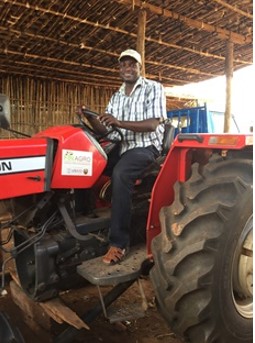Speeches Shim
BACKGROUND
Climate-smart agriculture (CSA) offers a promising pathway to sustainable intensification of agriculture and increased farm productivity, income and resilience for smallholder farming families. CSA is not new to Mozambique, but uptake has been slow due to various demand- and supply-side challenges. Limited awareness and trust in new technologies and a lack of access to markets and finance constrain demand. Further, even where demand exists, low-capacity and poorly functioning systems fail to deliver a supply of high-quality inputs and services to the rural farmer.
PROGRAM DESCRIPTION
The five-year USAID Feed the Future Climate Smart Agriculture Beira Corridor (FTF-CSA-BC) aims to equitably increase local producers’ agricultural productivity and profitability while increasing their resilience to climate change through the adoption of resilient agricultural technologies and practices. The project operates in the 11 Feed the Future districts in Manica and Tete provinces, and targets key agricultural stakeholders along the soya, pigeon pea, sesame, bean and cowpea value chains.
FTF-CSA-BC aims to increase the adoption of technologies and practices by supporting and incentivizing the private sector to test and grow profitable business models that deliver relevant information, advisory services, inputs, marketing linkages and access to finance.
The program consists of four main components:
- Behavior Change Communication
- Model Family Farms
- Sustainable Extensions Services
- Strengthened Market Systems
Components 1 and 2 will increase demand by raising awareness and demonstrating effectiveness of key technologies and practices, including improved seed, conservation agriculture practices, and water management and irrigation solutions. Components 3 and 4 will support supply-side improvements, leading to increased availability, accessibility and affordability of inputs and other technologies and improved private-sector-led advisory services.
EXPECTED RESULTS
The project will generate $7 million in incremental sales for 35,000 smallholder farming families and at least 50 local SMEs within the project timeframe. In addition, the project behavior change communication campaign will increase awareness of 175,000 farmers — half of the farmers in the Beira corridor ZOI. Even more importantly, proven business models developed with project support will be able to expand to supply growing demand as a result of benefits demonstrated by these early adopters. Our calculations indicate that impact could reach at least $25 million in incremental sales for at least 70,000 farming families 3 years after project exit.


Comment
Make a general inquiry or suggest an improvement.